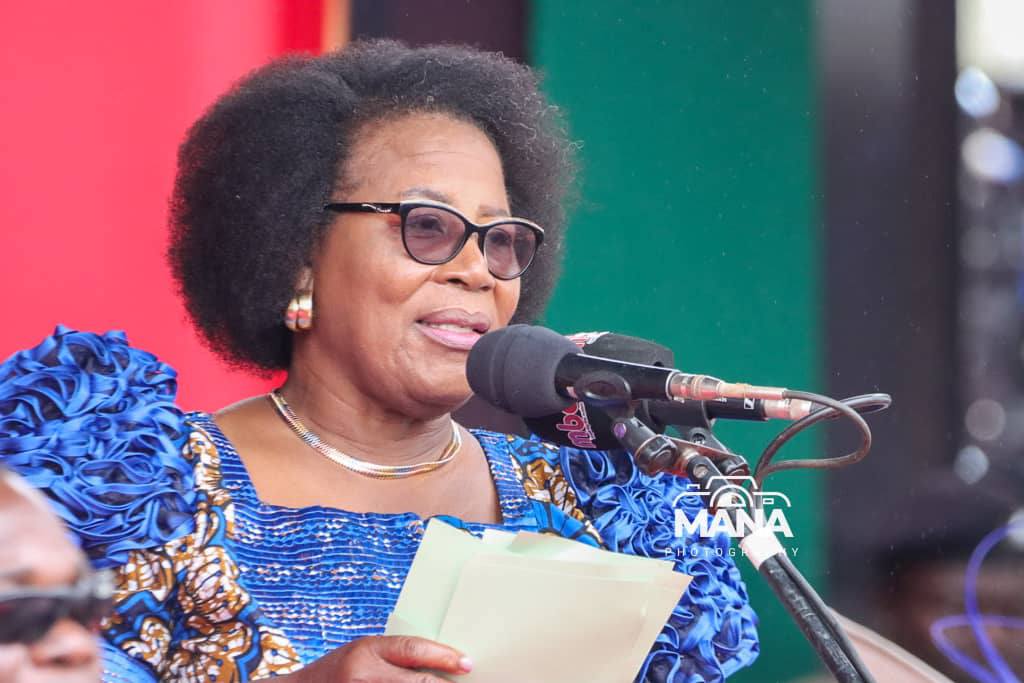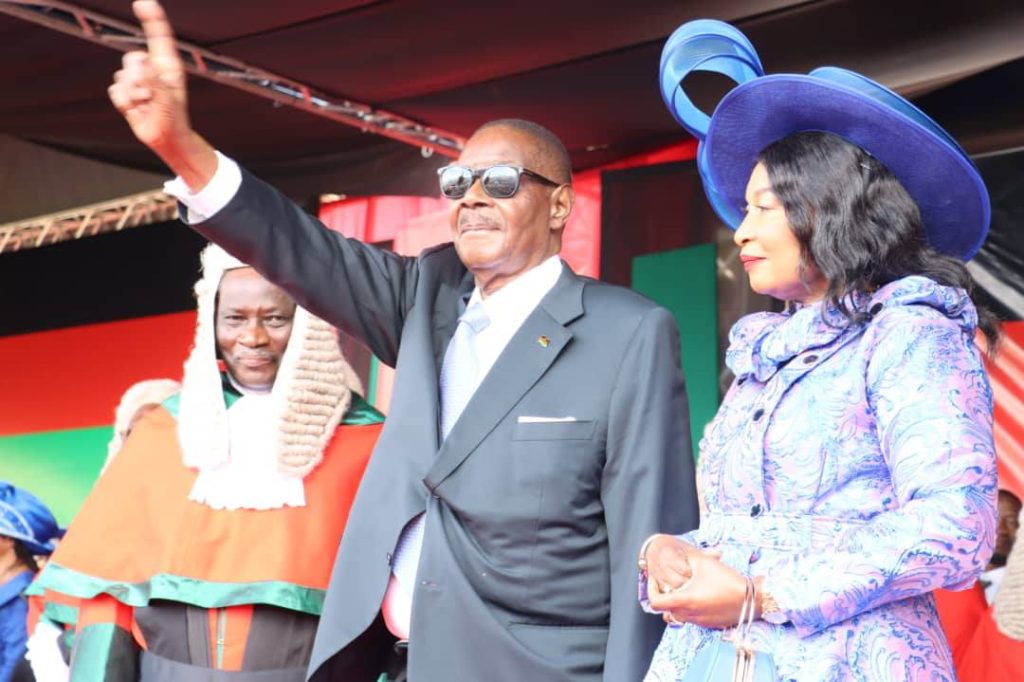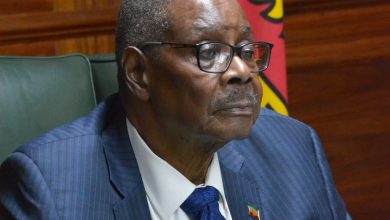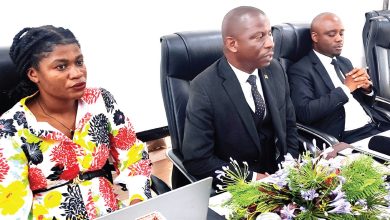Is Jane the ‘Ansah’ to DPP sticky succession plan?
On Saturday, President Peter Mutharika and Vice-President Jane Ansah took oaths of office, 10 days after being proclaimed winners in the September 16 General Election.
Mutharika’s comeback makes his running mate the only Malawi Electoral Commission chairperson to preside over a presidential election nullified by the courts and also part of a winning pair in one of the most credible polls in the country’s history.

Retired Justice of Appeal Ansah’s entry into politics got underway to a controversial defeat early this year when she contested in the Democratic Progressive Party (DPP) primaries for Ntcheu Northwest Constituency.
However, the party not only restored her to the parliamentary ballot, but also made her Mutharika’s chosen one in the presidential race.
“Dr Ansah is deeply religious, a woman of faith and integrity,” proclaimed Mutharika on July 26 2025 when he unveiled her as his running mate.

Now, questions are raging whether Ansah could be the answer to DPP’s succession dilemma.
For five years, the party failed to find a successor to the 85-year-old Mutharika and ambitions to wrestle with him for the top seat saw some young minds ejected.
Before being named Mutharika’s running mate, the former MEC chief stirred a backlash when photographed with DPP supporters at the inauguration of Mutharika whom she declared a winner in the election quashed by the courts due to widespread irregularities.
Save for the controversy, Ansah was neither perceived as a familiar foe in the bruising factional wars that led to the expulsion of former DPP vice-president (South) Kondwani Nankhumwa.
Instead, she carried a polished résumé of a technocrat: a woman lawyer to emulate, former Attorney General, Supreme Court Judge and MEC chairperson.
Her handling of the 2019 presidential election stirred serial mass protests until the courts cancelled Mutharika’s narrow re-election and ordered a fresh poll, eventually won by opposition leader Lazarus Chakwera in June 2020.
For admirers, Mutharika’s chosen one was an outsider likely to transcend DPP factional baggage.
For critics, her ascendency reignited debate over her role in the turbulent election.
As Mutharika enters his final presidential term, Ansah’s vice-presidency takes her to the heart of DPP power play—the succession riddle that transcends Nankhumwa’s firing.
Is she Mutharika’s anointed heir, another deputy to rot in the cold or a trigger for further internal fractures?
Heir apparent?
In some DPP circles, Ansah is no mere placeholder or pushover.
“She doesn’t come with factional debts,” said a senior strategist. “She offers Mutharika a clean slate needed to unify the party around a post-APM future.”
To political scientist George Chaima, Mutharika picked “someone he could lean on”.
“This was a decision made to ensure governance based on merit, trust, sincerity, integrity and fear of God,” he said.
Chaima says the rise of Ansah could be a ploy to promote women’s participation in decision-making political positions—just as Mutharika’s brother, Bingu, elevated Joyce Banda in 2009.
“I want to believe this is genuine progress. We expect women in leadership to be a voice for women and girls in a way men cannot,” says gender activist Maggie Kathewera Banda, who leads a nationwide campaign for equal representation of men and women in politics.
Ansah’s legal background and reputed decisiveness could resonate with citizens tired of perpetual political squabbling.
Yet vice-presidents remain a cursed species.
From Justin Malewezi’s fallout with Muluzi in 2003 to Banda’s banishment from DPP in 2010, they have all fallen foul of the Presidents who chose them.
In 2018, frustrated Saulos Chilima broke away from Mutharika to form the UTM Party.
Before him, Cassim Chilumpha’s bitter fallout with Bingu left his vice-presidency crippled with treason charges.
For Ansah, the questions over the cancelled presidential election hang like a noose over her head.
“Her handling of the 2019 elections left many questioning her impartiality. That history cannot be ignored. She must prove she can lead with honesty, fairness and rebuild public trust,” cautioned rights advocate Michael Kaiyatsa.
He is a member of the Human Rights Defenders Coalition, which led the mass protests for electoral justice.
Some critics fear she could be reduced to a figurehead like vice-presidents in many political parties in the country.
“The real game is among those who control money and grassroots structures,” says Chaima
“If Ansah is sidelined, it will be at the party level where she is not popularly known as an active member. Some old guards may find it difficult to see her deputise over them when they wanted that position themselves.”
Political scientist Nandini Patel said it is not unusual for technocrats to become vice-presidents.
“Malewezi, Chilumpha and Chilima were all technocrats. The real test will be whether she is given a substantive Cabinet portfolio. That will show if she is empowered or kept at ceremonial margins. Much depends on her personal relations with senior party officials,” she argued.
Without grassroots networks, Ansah risks being left to ribbon cuttings, funerals and other delegated duties that hinge on the President’s goodwill.
A fractured party?
As dust settles on Mutharika’s winning comeback campaign trail, murmurs of potential heirs are immutable—with seasoned DPP heavyweights with regional clout and financial muscle silently wrestling for a turn.
Some see Ansah as a liability tied to her 2019 legacy, but others doubt her charisma or ability to connect with the grassroots.
Political analyst Ernest Thindwa is blunt: “It is not opposition brilliance that changes governments here. It is governing party implosions,” he indicated.
For Kaiyatsa, Ansah’s inroads in DPP show just how important succession planning is.
“Power transitions within parties have real consequences for national stability. If the DPP rewards controversial leaders without addressing public concerns, trust in both the party and democracy itself could erode.”
Ansah denies any wrongdoing in what has gone into history as a tippexed election.
“If you read the court judgement, you will learn that tippex did not advantage any candidate. No vote rigging took place,” she said recently, claiming she forgave all who insulted her.
However, all eyes are on how she will carry out her new role.
The Constitution makes the Vice-President a president in waiting—if the sitting President dies, resigns or gets incapacitated—but offers little clarity on their powers and job description.
However, vice-presidents have rarely been treated without suspicion.
To Patel, the curse is less constitutional than cultural.
“There is no structural flaw needing reform. It is about interpersonal relations. Party conventions where all positions are openly contested remain distant. Until then, succession will be personalised and fraught,” she argued.
For Mutharika and DPP, Ansah’s political strides could be a test of whether the party can navigate succession without tearing itself apart.
DPP spokesperson Shadric Namalomba said: “As a party, we have serious matters to attend to, which the people of Malawi voted for. We refuse to be drawn into any speculations [about succession plans].”
But the question remains: Is Mutharika’s chosen one his heir apparent or just an escort to the finishing line of his presidential term escapades?





